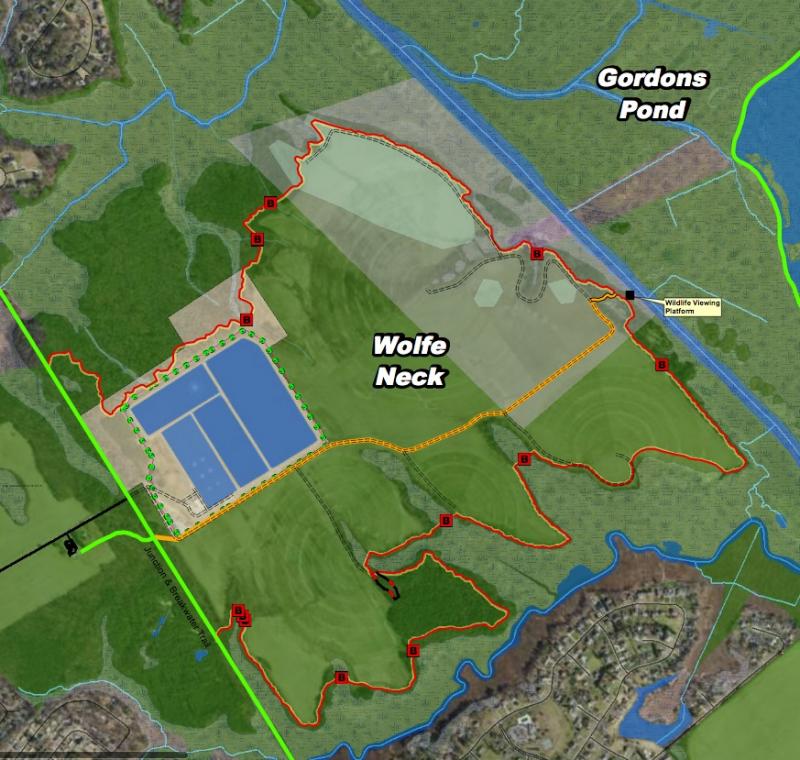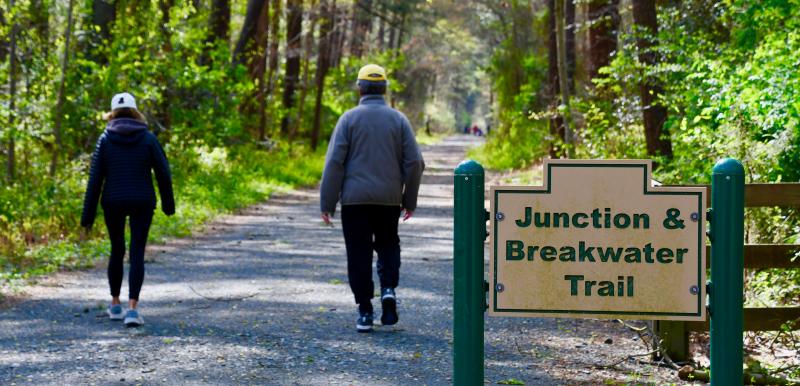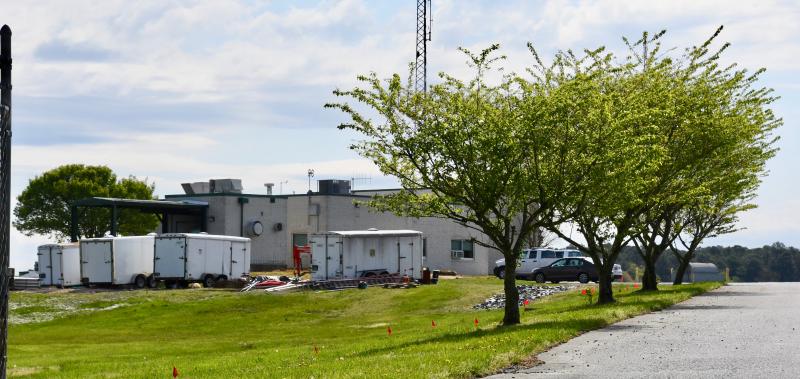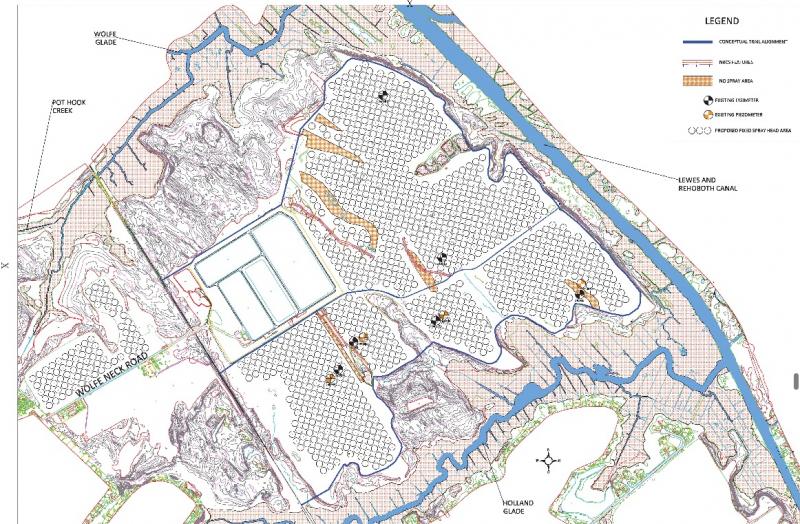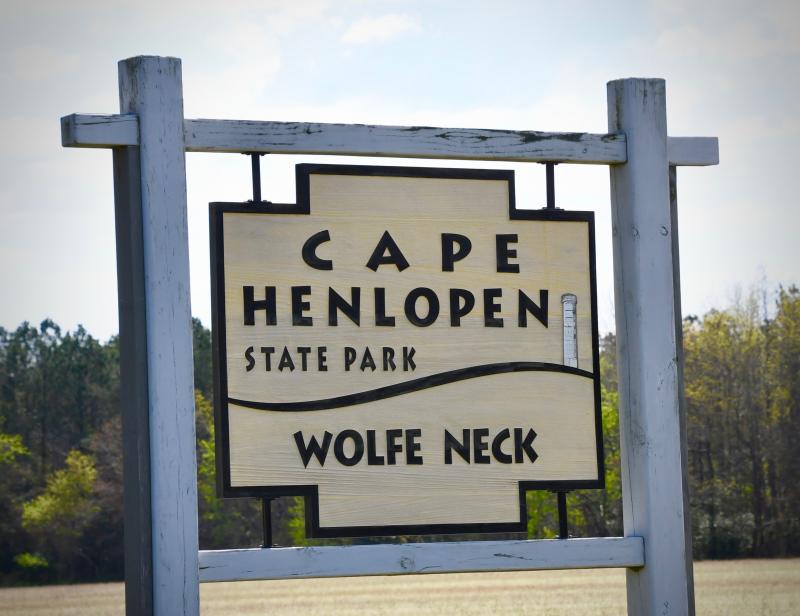State officials have finalized design of a new trail as part of a major project to convert the Wolfe Neck Regional Wastewater Treatment Facility from traditional pivot-head spray irrigation on farmland to fixed-head ground application on a wooded area.
At the April 7 Sussex County Council meeting, county engineer Hans Medlarz said Delaware Department of Natural Resources and Environmental Control Division of Parks staff have designed of a new trail loop from the Junction and Breakwater Trail around the perimeter of the property as part of Cape Henlopen State Park.
The trail will have a wildlife viewing platform overlooking the Lewes-Rehoboth Canal as it loops from one area of the Junction and Breakwater Trail to another.
Medlarz said the lease agreement with the state requires the county to contribute $1 million to the project over a five-year period. The public trail will be built by state agencies with repairs and maintenance by state crews.
The 6-mile outer loop, 40-inch-wide, single-track trail will have an all-weather surface of stone suitable for mountain bikes and pedestrians, said Shauna McVey, a DNREC spokeswoman. The shorter interior trail is an existing, 12-foot-wide unpaved service road that will remain open to the public.
The loop will double the length of the existing 6-mile Junction and Breakwater Trail linking Lewes and Rehoboth Beach.
McVey said officials plan to complete the trail in two to three years.
Plan includes reforestation
Council approved a $60,000 contract with Whitman, Requardt and Associates for design of the fixed-head irrigation grid. In addition, council approved a land swap with the state so the entire trail will be on state property.
The plan is to convert nearly 400 acres of farmland to reforested woodlands, returning the land to a natural state and providing public access to parts of Cape Henlopen State Park that have been closed for two decades.
The land will continue to be used for spraying treated wastewater, but instead of discharging onto crops, as has been done the past 20 years, the effluent will irrigate hundreds of acres of trees and vegetation, to be planted with assistance from the Delaware Center for the Inland Bays. The plan also includes a new trail as part of the popular Junction-and-Breakwater Trail linking Lewes and Rehoboth Beach.
At a previous meeting, Medlarz said several issues affect the treatment plant, including no room for expansion and limits on spray-irrigation during wet and cold periods of the year when wastewater can't be applied.
Treated wastewater is sprayed onto the 376-acre parcel for crops harvested for nonhuman consumption, such as livestock feed production. But factors such as weather, planting and harvest times, pesticide application and drying conditions affect how much and when effluent from the plant's lagoons can be sprayed, Medlarz said.
The engineer said trees, unlike crops, would allow a more even flow of treated wastewater with consistent, uninterrupted application. The plan would not diminish the facility's 2.3 million gallon per day treatment capacity, Medlarz said.
In early 2018, county staff took over farming operations on the property. Medlarz said as a result of much better internal coordination, the number of spray days lost due to farming activities was reduced by 75 percent.
